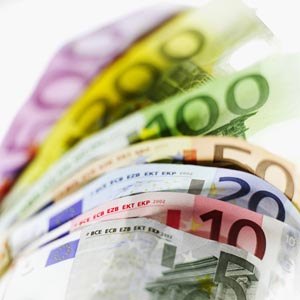Inflation lingers over Slovakia's final euro push
 Bratislava - When European officials rule in early May on Slovakia's request to switch to the euro, the impact will likely be felt throughout Eastern European economies.
Bratislava - When European officials rule in early May on Slovakia's request to switch to the euro, the impact will likely be felt throughout Eastern European economies.
Leaders in the ex-communist nation of 5.4 million people are eager to crown a remarkable run of growth, fuelled by big-name foreign investment, with admission into the currency club.
But at a time of worldwide concern over rising food and energy prices, the European Union's executive Commission and the hawkish European Central Bank (ECB) must weigh whether Slovakia can keep a lid on inflation, not just now but in the years ahead.
Slovak officials are confident that their nation is on track to its goal of becoming the 16th eurozone country - and the first from the former Soviet bloc - on January 1.
Central bank chief Ivan Sramko, in a recent interview with Deutsche Presse-Agentur dpa, said that the euro's economic advantages are clear. Slovakia is lobbying to persuade European officials that it has a grip on inflation, he said.
"We believe that the euro brings us stability and additional impulses to economic growth," he told Deutsche Presse-Agentur dpa. "We believe that we will be a very stable member of the euro."
Reports on Slovakia's euro readiness by the ECB and the European Commission, both expected May 7, will also send a signal to the region's other new EU members whether they can expect to qualify for the euro anytime soon - and whether it's worth the effort.
"That is what makes the decision about Slovakia so political," said Lars Christensen, senior analyst at Danske Bank. "You have to see (it) in a much, much wider context."
Slovakia has easily met criteria for adopting the euro on measures such as inflation over the last year and the public deficit. That leaves "sustainable" inflation as the key issue.
In 2006, European authorities rejected Lithuania's bid to join the euro, saying the Baltic state had failed to control inflation. A repeat would make it harder for other Eastern European governments to justify the tough economic policies needed to get euro-ready.
Meanwhile, Slovenia recorded a jump in prices after introducing the euro last year. Slovak leaders insist that won't happen in their country, in part because Slovakia's economy is more open to competition than the former Yugoslav republic's.
In the latest indicator, the European Commission said Monday that Slovakia's average inflation will spike to 3.8 per cent this year from 1.9 per cent in 2007, but retreat to 3.2 per cent in 2009.
The forecast sent Slovakia's koruna currency to an all-time high against the euro. Prime Minister Robert Fico, who insists European officials have no economic reason to keep Slovakia out, said the data showed the country was "on a good path" toward the euro.
But the tone was different at EU headquarters in Brussels. Joaquin Almunia, the European Commission's top monetary official, renewed a warning that Slovakia must consolidate public finances more aggressively to ward off inflation.
As if to remind Slovakia, ECB President Jean-Claude Trichet said Monday that preserving price stability is particularly important for the bank at a time of uncertainty in financial markets.
If Slovakia gets the nod, the government will gear up a roughly 6- million-euro (9-million-dollar) publicity blitz to increase public support for the euro. Many Slovaks fear that, despite official assurances, the switch will push up prices for everyday items.
A Focus agency poll in February found that only 43 per cent of Slovaks view the euro positively. Igor Barat, the Finance Ministry's point man for the pro-euro campaign, says the effort will highlight laws designed to prevent price gouging during the switchover.
The government plans to mail every household an electronic euro conversion calculator and will dispatch a "Euromobile" to remote areas. A travelling theatre troupe plans to dramatize the euro changeover for Slovakia's Roma population.
How confident is Barat that Brussels will approve Slovakia's euro application?
"Very, very confident," he said, "close to sure." (dpa)